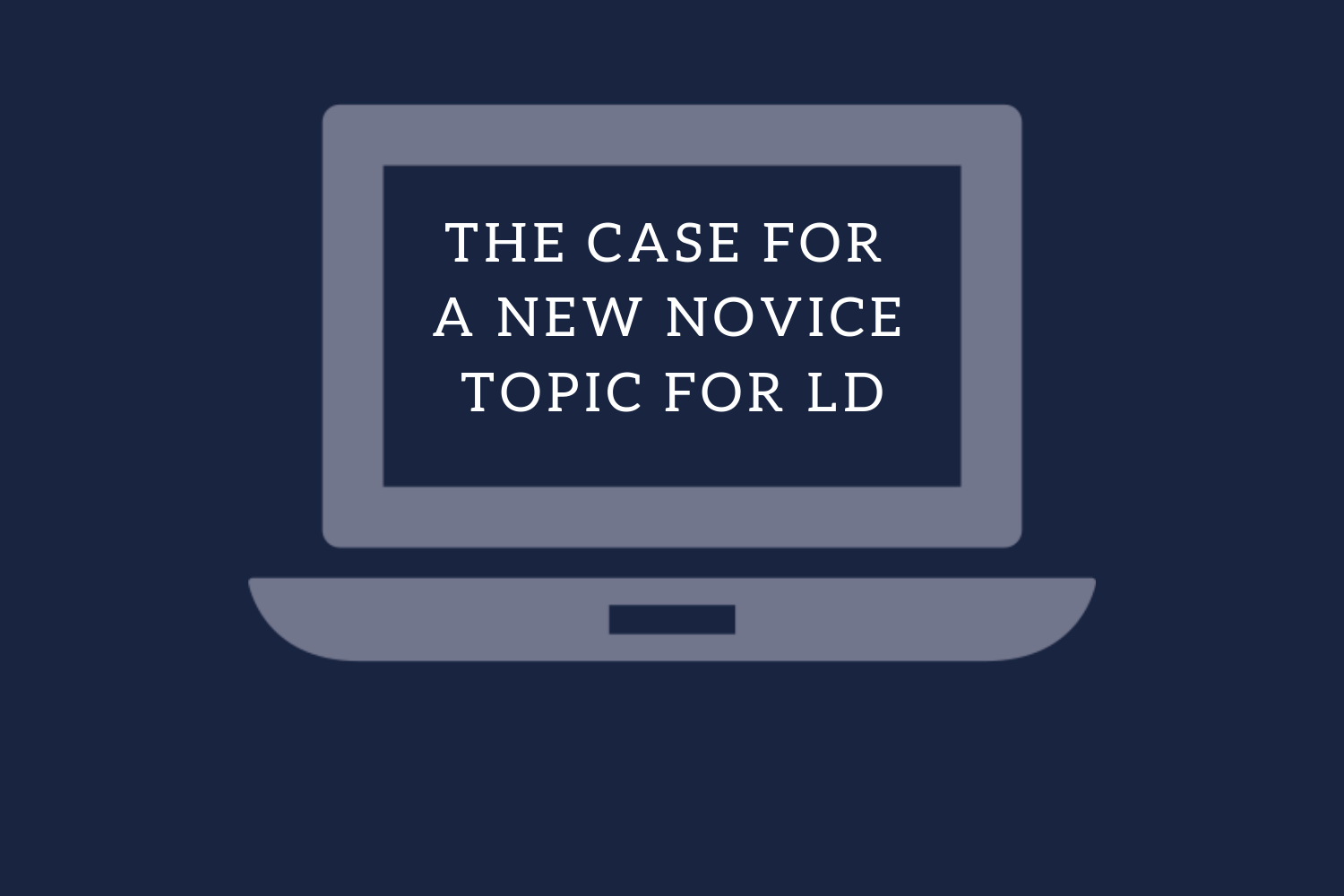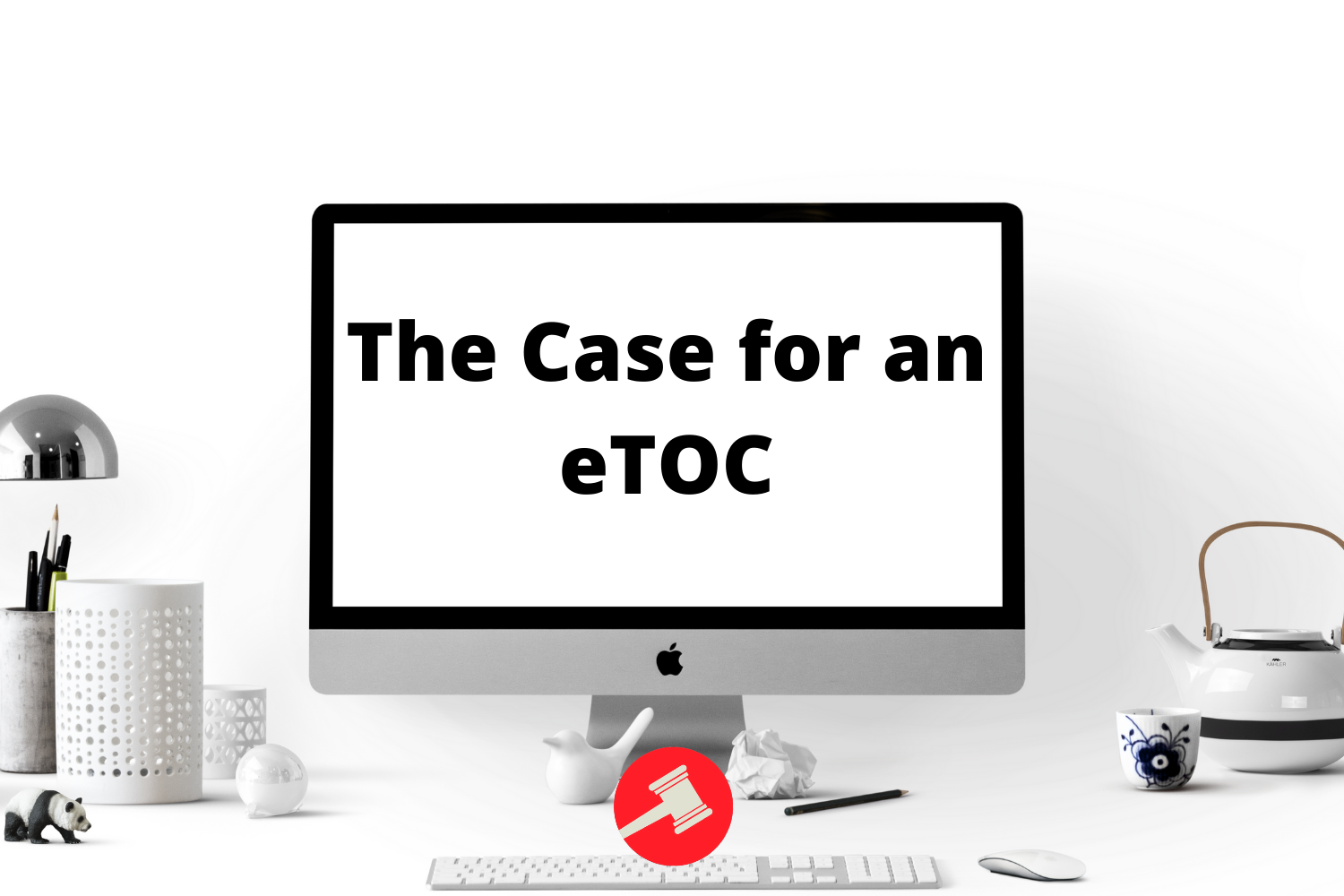The Case for Changing the Novice LD Topic (Kenan Anderson)

Introduction
In 2012 the National Speech and Debate Association introduced the following novice topic, “Resolved: Civil disobedience in a democracy is morally justified.” The topic was intended to allow novices a different topic than the yearly Sept/Oct topic, and allow for the NSDA and other organizations to build resources for novice debate that wouldn’t expire with new topics every year. The idea and intent behind the creation of novice topic are excellent; the choice of topic, however, should be reviewed.
The benefits of having a stable novice topic are self-evident. It allows coaches to focus more on teaching the fundamentals of debate, rather than focusing on having to research the new topic every year. Additionally, it allows older students to help mentor younger students by giving them advice from when they debated the same topic. It also provides an opportunity to create a topic that is tailored toward novice debate and isn’t subject to the usual wording or style controversies that most topics during the regular season are. That being said, I think the civil disobedience topic fails to capitalize on this potential in a few key ways.
Objections
#1 – “Civil Disobedience” as an unfamiliar term
The novice resolution contains several phrases that most 9th grade students will likely be unfamiliar with, most notably “civil disobedience.” Civil disobedience rarely comes up in our daily lexicon, and there exists substantial disagreement over its exact definition. In my experience, this resulted in both many practices and many debate rounds being focused around simple questions like whether example X or Y was strictly civil disobedience rather than some other form of protest. These definitions debates directly trade off with other debate skills such as clash and argumentation, as they often come down to whose definition is better sourced, or a judge’s particular view of an issue. Navigating topicality questions and legal definitions are important skills in Lincoln-Douglas no doubt, but I question whether or not having them so central to a Novice’s first ever debate, doesn’t provide more challenges than opportunities.
#2 – “In a Democracy”
This terminology has been lamented in varsity topics time and time again, but I think it’s particularly harmful in Novice debate. Imagine a novice reads an affirmative case that cites countries that are not clearly authoritarian, nor clearly democratic (say Ukraine, or Bolivia) as examples of where civil disobedience has been very effective in increasing the well-being of citizens. In a varsity round this could spark a nuanced topicality debate about the form of government in those countries, however, the lack of an actual actor, combined with the lack of tools novices have to address this sort of potential abuse, prevents such an engagement. Instead, a novice might have to simply resort to claiming those countries are not democracies, despite likely not having definitions or indexes of democracies cut to read as evidence. I can’t tell you how many times I also heard the “The United States isn’t a democracy, it’s a republic” or “The United States wasn’t a democracy until the Civil Rights Act passed” as arguments used to dismiss entire contentions. Questions around the democratic nature of countries are valid, but once again, having them be so central to a student’s first ever debate topic is unwise.
#3 – Lack of a clear negative and affirmative world
Perhaps the worst aspect of the resolution is that it lacks any sort of action, or distinguishing feature that creates distinct affirmative and negative worlds. It’s also unclear which side defends the status quo (if that term even applies). This makes the debates feel ungrounded in the world. For example, a negative debater might argue that “civil disobedience eventually results in chaos and anarchy and destroys the rule of law.” However, civil disobedience has occurred in the past and still occurs to some degree today. It seems clear that the affirmative isn’t responsible for defending all civil disobedience, and that there’s no policy action or change from the status quo. This once again causes novice debates to veer off from substantive clash into questions around what the affirmative does or does not defend.
Suggestions for Improvements
#1 – A Clear Policy Action (Without Room for Plans)
While the merits of role-playing as policymakers in debate have been discussed beyond measure, I think most people can agree that a topic with a clear policy action would allow novices to have a better grasp of the debate. Creating a world in which the affirmative is a clear shift from the status quo helps make the debate much more clear. It would allow for novices to develop research skills that would better translate into varsity debate and help avoid many of the issues noted above. Additionally, a fairly narrow topic that avoids the widespread possibility for plans will help prevent varsity debaters from simply handing down prep-outs or pre-written cases that are impossible to engage with.
#2 – A Well-Known Topic
A novice should be able to understand the resolution question just by reading it, or with just a brief explanation. Complicated legal terms or terms of art should be avoided, or if they are used, should have a clear definition that has consensus in the topic literature.
#3 – A Good Topic Literature
This is a requirement for any good topic, but I think especially important for novices. There should be a reasonably sized topic literature, with some variation, but not overly broad. I think the Nov/Dec topic about development assistance is an example of a topic that meets the previous two criteria, but not this one. That topic featured a clear policy action and was easily explained, but the topic literature was too varied and widespread. Novice debate should teach students the benefits of doing good research, and finding unique arguments, but it shouldn’t be a race to find the most recent or in-depth meta-study.
Possible Alternative Novice Topics
These are not fully fleshed out by any means and haven’t undergone the level of scrutiny that the topic committee generally requires, but here are my first thoughts on what could make an effective novice topic. Some of them have uniqueness issues, but I think most could do very well as novice topics.
Resolved: The United States ought to reinstate the military draft.
Resolved: The United States ought to decrease its military presence in the Middle East.
Resolved: The United States ought to abolish capital punishment.
Resolved: Public schools ought to require student uniforms.
Resolved: In the United States, voting in elections ought to be compulsory.
Resolved: The United States ought to ban nuclear power.
Resolved: The United States ought to raise the minimum wage to $15/hour.
Do you have a suggestion for a good novice debate topic? Feel free to comment below or on our Facebook page!


